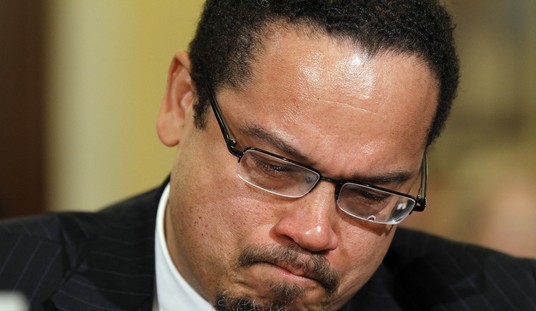Could an appointment by Barack Obama to a State Department legal post do more damage than an appointment to the judiciary? Meghan Clyne at the New York Post makes that argument in a report on Professor Harold Koh, the dean of Yale Law School, whom Obama nominated to be the legal adviser to Hillary Clinton. As such, his opinions on treaties and international law could have profound impact on law enforcement and court decisions in the US:
JUDGES should interpret the Constitution according to other nations’ legal “norms.” Sharia law could apply to disputes in US courts. The United States constitutes an “axis of disobedience” along with North Korea and Saddam-era Iraq.
Those are the views of the man on track to become one of the US government’s top lawyers: Harold Koh.
President Obama has nominated Koh — until last week the dean of Yale Law School — to be the State Department’s legal adviser. In that job, Koh would forge a wide range of international agreements on issues from trade to arms control, and help represent our country in such places as the United Nations and the International Court of Justice.
It’s a job where you want a strong defender of America’s sovereignty. But that’s not Koh. He’s a fan of “transnational legal process,” arguing that the distinctions between US and international law should vanish.
Clyne makes a hard sell on Koh. especially on the issue of shari’a law. In her weakest argument, she relies on a second-hand report of Koh’s remarks about shari’a and its potential application in the US. She does quote Koh’s spokesperson as essentially saying that the context of the remark may have been quite different than Clyne’s representation of it:
A New York lawyer, Steven Stein, says that, in addressing the Yale Club of Greenwich in 2007, Koh claimed that “in an appropriate case, he didn’t see any reason why sharia law would not be applied to govern a case in the United States.”
A spokeswoman for Koh said she couldn’t confirm the incident, responding: “I had heard that some guy . . . had asked a question about sharia law, and that Dean Koh had said something about that while there are obvious differences among the many different legal systems, they also share some common legal concepts.”
I think we have to score that one a miss for Clyne, at least until she comes up with a better reference to the actual remarks. On other grounds, though, Clyne makes a better case. One might not be surprised to find out that Obama would nominate someone in this position who declared Bush’s invasion of Iraq a violation of international law, but you might be surprised to hear which Bush Koh so criticized. In fact, it was the first President Bush, and Koh blasted Operation Desert Storm, even though Bush got the assent of the United Nations Security Council for the action. Apparently Koh was more concerned with American violations of international law than Saddam Hussein invading and occupying Kuwait.
I’d call that pretty radical. Koh opposed a war that even Barack Obama supported, or at least suggested he would have supported in 1991 had he been in office due to the level of international accord on it. The AUMF passed in a Democratic Congress, by a thin margin in the Senate (52-47) but by almost 70 votes in the House (250-183).
Clyne has it right when she warns that Koh will be a harbinger of the kind of judges Obama will appoint — perhaps including Koh himself. A self-professed fan of Roe, Koh praised Blackmun’s actions in the case, saying that he’d rather rule wrong on the law and have people provide rationalizations later, as long as he got the policy correct. The only trouble is that the Supreme Court isn’t a policy-making entity, and neither are the federal courts in our constitutional republic. The legislature makes the laws in conjunction with the executive, which enforces them. The courts rule on evidence and constitutionality, and not on the wisdom of policy — or at least they shouldn’t, as they have no accountability for their policy input.
If Koh gets confirmed in this position, Clyne argues that his next stop will be the Supreme Court. I suspect that even a supine GOP won’t roll over for Koh, not with the bill of particulars she presents in this column. If this is what Obama thinks is moderate, we’re in for a long four years, and a generation of damage in the courts.
Update: Ed Whelan had an interesting profile of Koh’s transnationalism last September, when he Hoped to Change voters’ minds before it was too late.








Join the conversation as a VIP Member